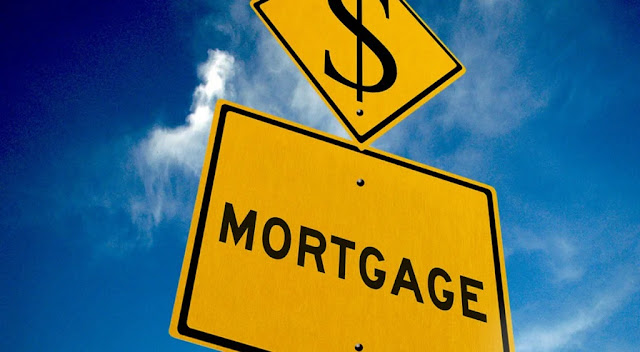
Own Your Home Faster: 3 Powerful Strategies to Accelerate Your Mortgage Payoff

Owning a home is a significant milestone and a cornerstone of the "American Dream" for many. But the reality of a 30-year mortgage can feel like a long and arduous journey. The good news is, you don't have to resign yourself to decades of payments. There are effective strategies you can implement to accelerate your mortgage payoff, potentially saving tens of thousands of dollars in interest and achieving financial freedom sooner. This article reveals 3 powerful, actionable strategies, supported by key considerations, to help you own your home faster without drastically changing your lifestyle.
3 Powerful Strategies to Accelerate Your Mortgage Payoff:
Accelerate Payments Strategically: This principle is all about making more frequent or larger payments than required, directly targeting the principal balance of your loan. By reducing the principal faster, you decrease the amount of interest that accrues over the life of the loan, leading to significant savings and a quicker payoff.
- Biweekly Payments: Instead of making one full mortgage payment each month, divide your monthly payment in half and pay that amount every two weeks. Because there are 52 weeks in a year, this results in 26 half-payments, which is equivalent to 13 full monthly payments instead of the standard 12. This extra payment each year goes directly toward your principal, accelerating your payoff timeline. Example: For a $250,000 loan at a 4% interest rate, your monthly payment might be $1,193. By paying $597 every two weeks, you'll effectively make one extra payment per year, saving over $22,000 in interest and paying off your mortgage approximately 4 years earlier.
- Round Up Payments: This simple yet effective strategy involves rounding up your monthly mortgage payment to the nearest round number. While the extra amount might seem small initially, it adds up significantly over the life of the loan. Every dollar applied to the principal reduces the interest you'll pay in the long run. Example: On a $250,000 loan with a monthly payment of $1,775, rounding up to $1,800 means an extra $25 per month. Over the life of the loan, this small change can save you approximately $8,000 in interest and allow you to pay off your mortgage about a year earlier.
- Make Additional Principal Payments: Whenever you receive extra cash, such as bonuses from work, tax refunds, inheritance, or even proceeds from selling items you no longer need, make it a priority to apply that money directly to your mortgage principal. This is one of the most effective ways to accelerate your payoff. Even small, consistent extra payments can make a substantial difference. Example: Adding an extra $2,000 per year to the principal of a $200,000 loan at a 4% interest rate could save you around $28,000 in interest and shave approximately 5 years off your loan term.
Optimize Your Loan Terms: This principle focuses on strategically adjusting the terms of your mortgage to reduce the overall cost and shorten the repayment period. While this often involves refinancing, there are other approaches as well.
- Refinance to a Shorter Term: If your financial situation has improved and you can comfortably afford higher monthly payments, consider refinancing to a shorter-term mortgage, such as a 15-year loan instead of a 30-year loan. While your monthly payments will increase, the interest rate is often lower for shorter-term loans, and you'll significantly reduce the total amount of interest paid over the life of the loan. This can save you tens of thousands of dollars. Example: A $300,000 loan at a 4% interest rate for 30 years would result in a monthly payment of approximately $1,432. Refinancing to a 15-year loan at a potentially lower rate of 3% would increase your monthly payment to around $2,072. However, you would save approximately $80,000 in interest and own your home in half the time.
- Pay as if You Have a Shorter Loan: If refinancing isn't a feasible option due to closing costs or other factors, you can still achieve similar results by making payments as if you had a shorter-term loan. Calculate the monthly payment for a 15-year mortgage on your current loan amount and interest rate, and then pay that amount each month. This allows you to accelerate your payoff without the need for refinancing. Example: With a 30-year loan of $250,000 at a 4% interest rate, your regular monthly payment would be around $1,193. However, by paying $1,850 each month (as if it were a 15-year loan), you'll save over $100,000 in interest and reduce your mortgage term by about 15 years.
Maximize Extra Income Opportunities: This principle emphasizes actively seeking ways to generate additional income specifically to accelerate your mortgage payoff. These extra funds can be powerful tools for reducing your principal balance and shortening your loan term.
- Funnel Unexpected Money: Treat any unexpected income as a bonus payment towards your mortgage. This includes tax refunds, gifts, bonuses, or any other windfall you receive. Resist the temptation to spend this money on non-essential items and instead prioritize your mortgage payoff. Example: If you receive a $5,000 tax refund annually, applying it directly to the principal of a $250,000 mortgage could save you nearly $70,000 in interest and reduce your loan term by approximately 8 years.
- Fight Lifestyle Inflation: When you receive a raise or an increase in income, it's tempting to upgrade your lifestyle and increase your spending. However, a smart financial move is to resist this temptation and instead allocate the additional income towards your mortgage. This can have a dramatic impact on your payoff timeline. Example: If you receive a $500 raise each month and consistently add it to your existing $1,200 mortgage payment, over time, this can save you an estimated $93,000 in interest and allow you to pay off your mortgage approximately 12 years earlier.
- Generate Additional Income: Consider exploring ways to generate additional income through side hustles, part-time jobs, freelancing, or renting out a spare room or space in your home. Dedicate all or a significant portion of this extra income directly to your mortgage. Example: Renting out a spare room for $800 per month and consistently applying it to your mortgage payment could save you over $160,000 in interest and help you become mortgage-free approximately 15 years sooner.
- Make a Large Annual Payment: If making consistent extra payments isn't feasible, consider making one large annual payment towards your principal. This lump-sum payment can significantly reduce your loan balance and save you a substantial amount of interest over time. Example: Making a $10,000 payment annually on a $300,000 mortgage could save you over $110,000 in interest and reduce your mortgage term by approximately 11 years.
Supporting Concepts:
These core principles are strengthened by several important supporting concepts:
- Visualize Your Progress: Tracking your progress and visualizing your success can be a powerful motivator. Create a visual chart or use a mortgage amortization calculator to see the impact of your extra payments on your payoff timeline and total interest paid. Celebrating milestones, no matter how small, can help you stay motivated and maintain momentum.
- Prioritize an Emergency Fund: Before aggressively paying down your mortgage, ensure you have a solid emergency fund in place. Aim for 3-6 months of essential living expenses in a readily accessible savings account. This provides a crucial financial safety net in case of unexpected events like job loss, medical emergencies, or home repairs.
- Check for Prepayment Penalties: Carefully review your mortgage agreement for any prepayment penalties. Some lenders may charge a fee for making extra principal payments or paying off your mortgage early. Understanding these potential penalties is crucial before implementing any accelerated payoff strategies.
- Balance with Retirement Savings: While paying off your mortgage early is a worthwhile goal, it's important to maintain a balanced approach to your overall financial plan. Don't neglect your retirement savings in favor of solely focusing on your mortgage. Continue contributing to your 401(k), IRA, or other retirement accounts to ensure a secure financial future.
Conclusion:
Owning your home sooner is an achievable goal. By implementing these 3 powerful strategies – accelerating payments strategically, optimizing your loan terms, and maximizing extra income opportunities – you can significantly reduce your mortgage term, save substantial amounts on interest, and achieve financial freedom faster. Remember to consider the supporting concepts for a balanced and responsible approach. Take control of your mortgage payoff journey today and move closer to owning your home outright.



